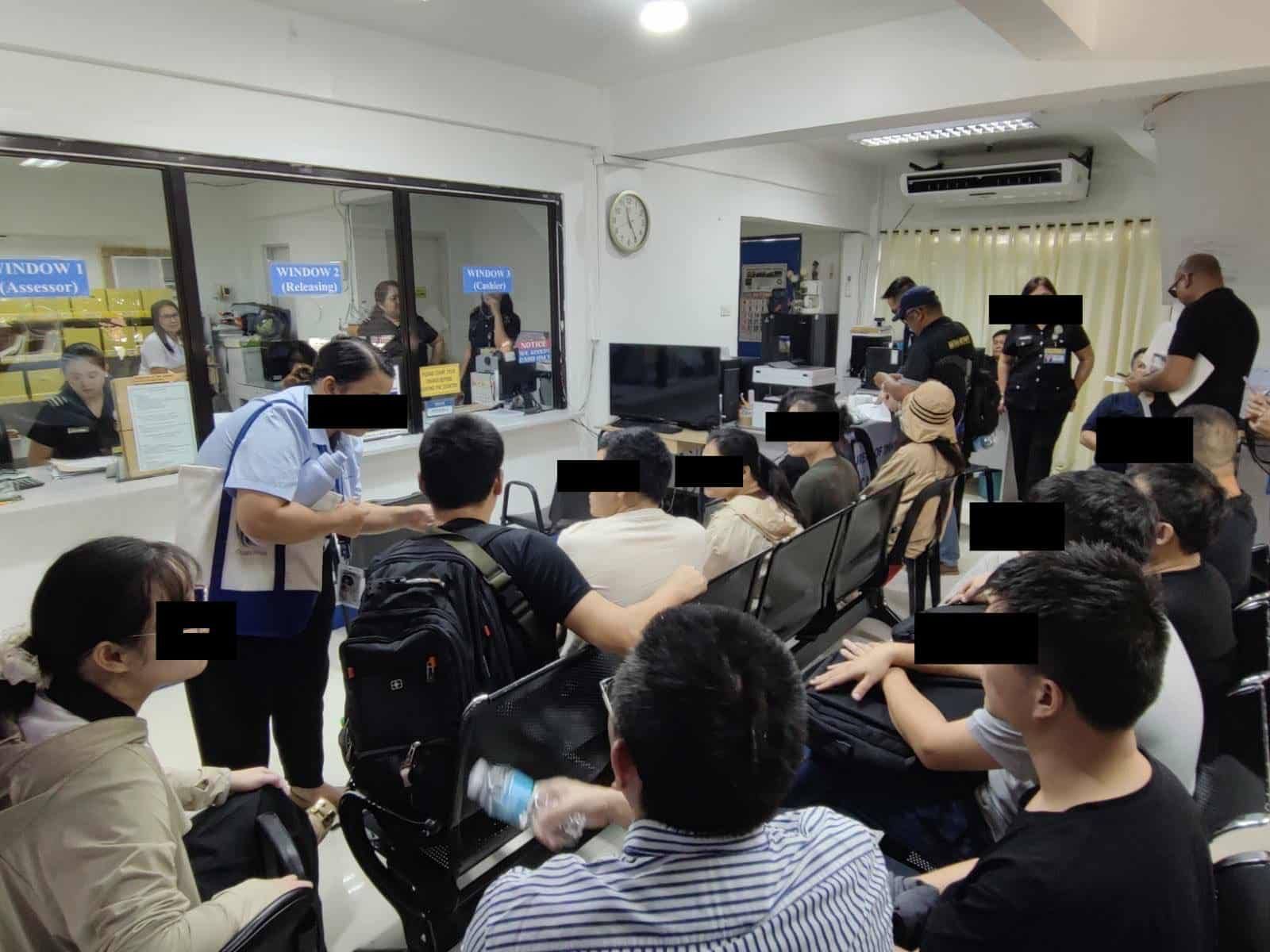Twelve Chinese nationals who were allegedly working illegally for an internet service provider were arrested in a raid in Barangay 95-A Caibaan, Tacloban City last October 15.
The operation, involving the Bureau of Immigration (BI), the Philippine National Police (PNP), the Armed Forces of the Philippines (AFP), and the National Intelligence Coordinating Agency (NICA), revealed what authorities describe as a systematic pattern of immigration fraud, corporate misrepresentation, and labor violations.
According to the BI, several of those detained entered the Philippines on tourist visas, and later sought Alien Employment Permits (AEPs) using invalid Tax Identification Numbers (TINs).
Some had obtained AEPs through companies unrelated to their actual employer, then were funnelled into work for Ocean Wave Communications (also called Hailang Communications).
In doing so, they allegedly breached the conditions of their permits.
Further charges being prepared against Ocean Wave include violations of corporate law through inconsistencies in registration documents, tax offenses linked to erroneous TIN use, and misrepresentation of labor conditions.
The BI asserts that these individuals engaged in gainful employment in violation of Section 9(a) of the Philippine Immigration Act, which prohibits work without the requisite visa or permit.
The 12 Chinese nationals are now in BI custody and are expected to face deportation proceedings. Meanwhile, legal action against the company and its local operators is being readied.
Local media describe the arrests as targeting foreign nationals “illegally working” without proper documentation.
On the surface, the raid may show the government’s resolve to enforce immigration and labor rules, particularly concerning foreign nationals. But it also raises deeper questions: how was this network able to operate for so long without triggering audits or intervention?
How many more such enterprises exist under the radar?
The Ocean Wave case may just be the most visible breach to date, but unless the lessons are institutionalized, it will not be the last.
For now, the public deserves full disclosure: who in the company aided or abetted the scheme, what safeguards failed, and what policy reforms will prevent a repeat.
This affair should catalyze stronger oversight not only of foreign workers, but of the corporate and regulatory systems that allowed the abuse to persist until arrest day.
#WeTakeAStand #OpinYon #OpinYonNews

